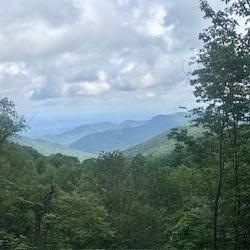A cheesy evangelism line that I used to use when I was doing some door to door evangelism stuff when I was at my last church went something like this: "how do you plan on getting off this earth alive?" To my memory, I cannot recall why or where I came up with this idea, it may have been my own musings. I spend a lot of time in therapy sessions with both kids and adults tacking existential questions of life. As silly as the evangelism line is, it does beg the question, how are you spending your time here on this side of the dirt? I feel that as I get older and I observe that people move away from organized religion and organized social clubs like Moose, Elk and others, we have instead turned to electric forms of social engagment, leaving us with the true inability to relate to those around us. So many questions I get asked as a therapist used to be answered by the older members of the community. Back in my day as many of the old Polish, Slovakian, Italian and Russian members of my community would say to me, I now find myself saying. I find that my clients and much of the other people I come in contact with, have no real direction because there is no one to be a way point for them. For me, the old people in my life were and are my way points. I find scripture too to be a way point. Our tradition points to scripture as one of the pillars of faith and a way point to understanding what we are doing here. But really, what is this "scripture"? Addressing our youth for a moment, what do you do with this book your pastor, your parents, and maybe your grandparents told you to read? Have any of you taken on any memorize scripture challenges? I challenge you to not do this. Instead, read the bible in it's historical context. I fear that when we memorize scripture alone, we are only memorizing sound bites. If instead, we memorize scripture AND the context it was written, we do two things: we learn the words obviously, but we also can understand what the people were thinking when they were saying the words. This is important, hold on, I am getting there. One of my devotionals for the week of May 30 came from the Henri Nouwen Society mailing list that I subscribe to. It offered this: Jesus, the Blessed Child of the Father, is a peacemaker. His peace doesn't mean only absence of war. It is not simply harmony or equilibrium. His peace is the fullness of well-being, gratuitously given by God. Jesus says, "Peace I leave to you, my own peace I give you, a peace which the world cannot give, this is my gift to you" (John 14:27). Peace is Shalom - well-being of mind, heart, and body, individually and communally. It can exist in the midst of a war-torn world, even in the midst of unresolved problems and increasing human conflicts. Jesus made that peace by giving his life for his brothers and sisters. This is no easy peace, but it is everlasting and it comes from God. Are we willing to give our lives in the service of peace?
With the words of Nouwen reflecting on Christ and reflecting on the context in which Jesus wrote, how do we live into the peace that Jesus offers? What was the social context in which Jesus offered this peace and how does it relate to the social context we live in today? In a tumultuous time such as this, how do we offer others the peace the world cannot give? Where then do we find the strength to give this peace?
Namaste,
Rob
Reference:
Bread for the Journey, by Henri J.M. Nouwen, ©1997 HarperSanFrancisco.











